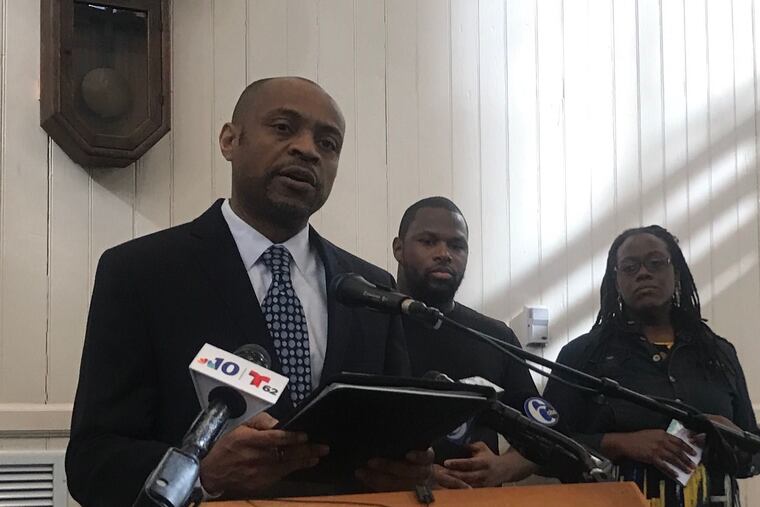Pa. Supreme Court will probe alleged ‘systemic failure’ in Philadelphia bail practices
"The inquiry shall be limited to Petitioners’ allegations regarding systemic failures of the First Judicial District to properly conduct cash-bail matters pursuant to current law, as well as any suggestions for action by this Court in response to those alleged systemic failures."

In March, the American Civil Liberties Union of Pennsylvania filed a lawsuit demanding that the state Supreme Court exert its authority to correct what the organization said was an unconstitutional system of imposing bail in Philadelphia. It cited hearings that last less than three minutes, in which defendants are effectively silenced and bail is routinely imposed without consideration of ability to pay.
On Monday, the court denied the ACLU’s petition to certify a class action lawsuit against the magistrates who set bail, but said it would exercise its King’s Bench jurisdiction to conduct an inquiry into the cash-bail system in Philadelphia.
“The inquiry shall be limited to petitioners’ allegations regarding systemic failures of the First Judicial District to properly conduct cash-bail matters pursuant to current law, as well as any suggestions for action by this court in response to those alleged systemic failures," the court’s opinion noted.
"Any attempt to advocate for the abolition of cash bail will not be entertained,” it added.
The court appointed as special master Judge John Cleland, who has overseen high-profile assignments including the “Kids for Cash” investigation of Juvenile Court judges in Luzerne County, the Jerry Sandusky child sex-abuse trial, and a grand jury report into the cover-up of abuse by Catholic clergy.
A spokesperson for the First Judicial District said, “Because this matter is open, we are not able to comment.”
The ACLU filed the lawsuit on behalf of the Philadelphia Community Bail Fund and 10 anonymous individuals being held on bail they could not afford, after observing more than 2,000 preliminary arraignment hearings in the city. The organization called the decision a major step toward a more just system of pretrial release in the city.
“We are grateful that the court understands that this situation needs more investigation,” said Reggie Shuford, executive director of the ACLU of Pennsylvania, in a statement. “People who have not been convicted of a crime are sitting in Philadelphia jails only because they are too poor to pay the bail they’ve been assigned. The Philadelphia courts have effectively criminalized poverty.”
Ross Miller of the University of Pennsylvania’s Quattrone Center for the Fair Administration of Justice said the center’s research indicates that keeping more people out of jail before trial could actually reduce crime.
“The research suggests that pretrial detention has a crimenogenic effect: When people are held in custody prior to the resolution of a case, that can actually increase recidivism and decrease public safety,” he said.
Pretrial detention has also been linked to higher conviction rates and longer sentences, and recent research on Philadelphia courts found stark racial disparities in who is able to post bail.
Advocates have relied on that research to litigate their way to bail reform in other parts of the country, including Harris County, Texas, home to Houston, where a group of poor defendants prevailed in a class-action lawsuit arguing that the county was jailing them unconstitutionally, solely for inability to pay.
In Pennsylvania, it’s rare for the court to exercise King’s Bench powers, according to Aaron Marcus, a lawyer with the Defender Association of Philadelphia, which the Supreme Court invited to join the proceedings along with the district attorney. The court typically reserves that authority for serious and urgent questions of public interest; it also extended the jurisdiction last year to review a challenge to the death penalty in the commonwealth.
“It’s a big deal that the Supreme Court recognized that there are some serious and fundamental flaws in the pretrial arraignment process in the First Judicial District,” he said. “Despite our relentless push to reform pretrial practices in Philadelphia, the current system continues to ignore the law and unnecessarily jails poor people.”